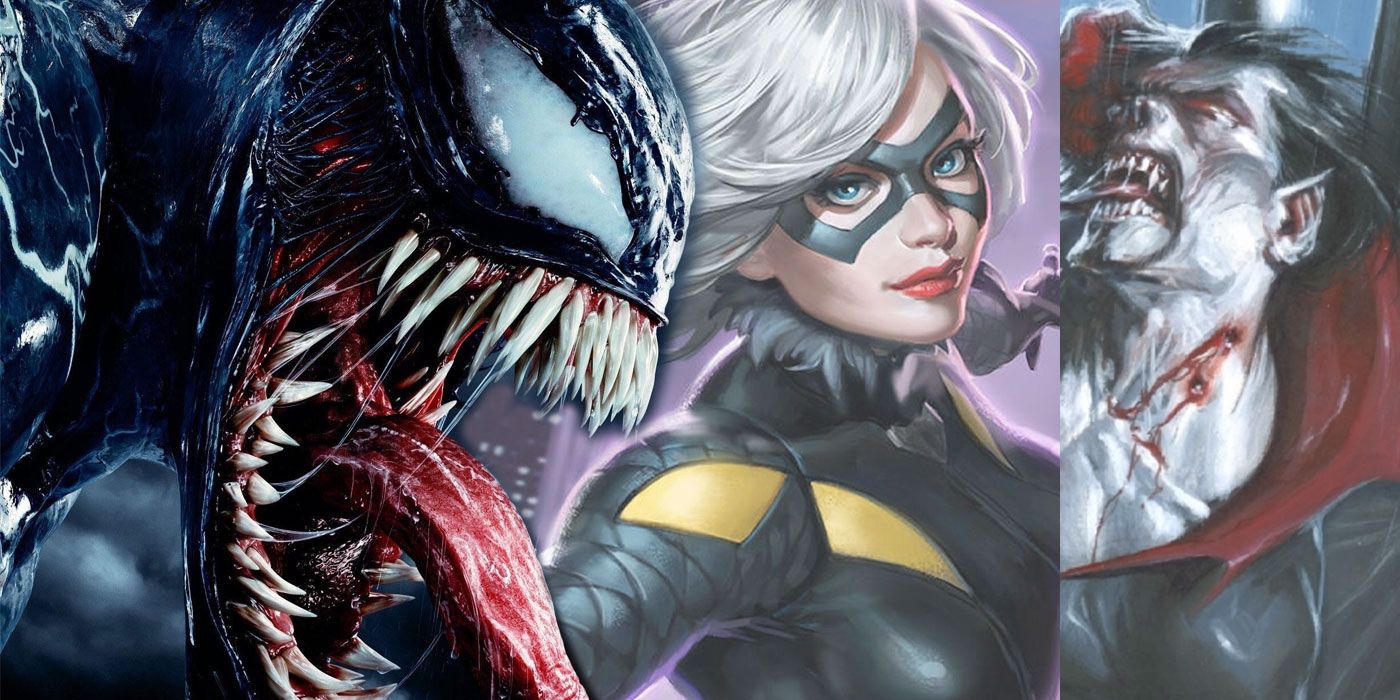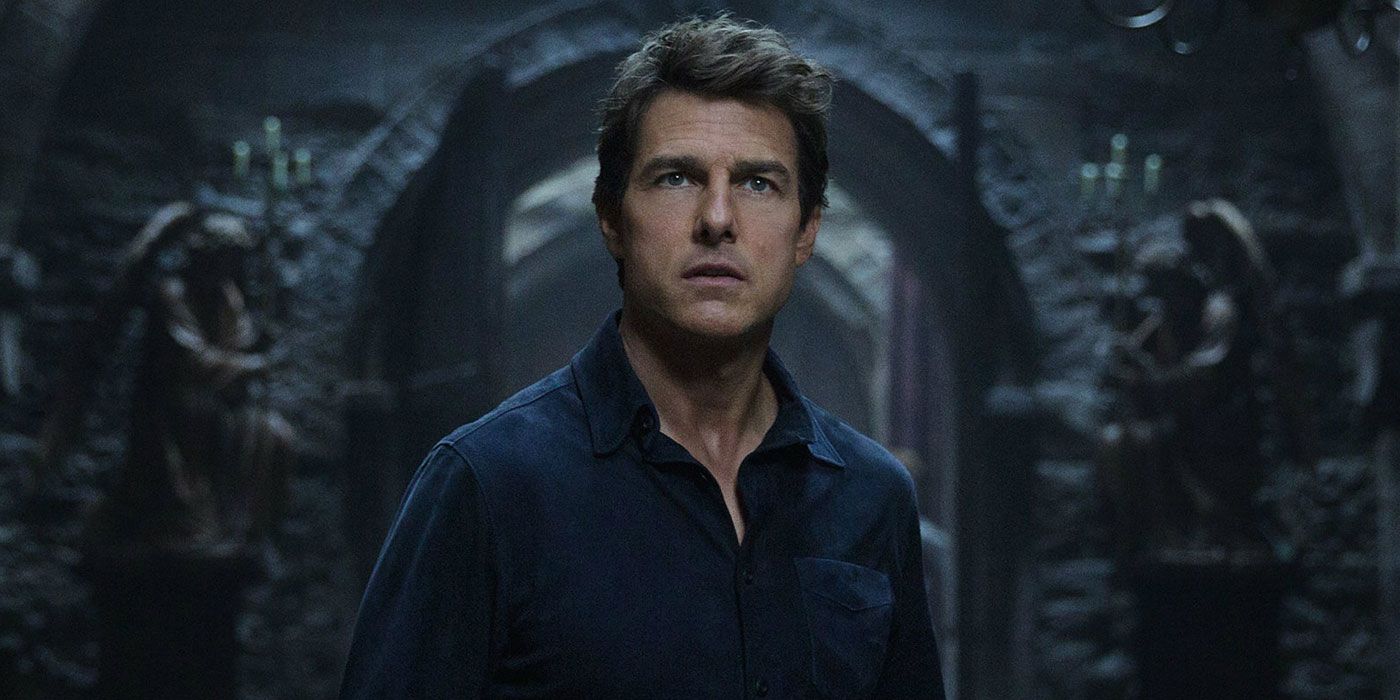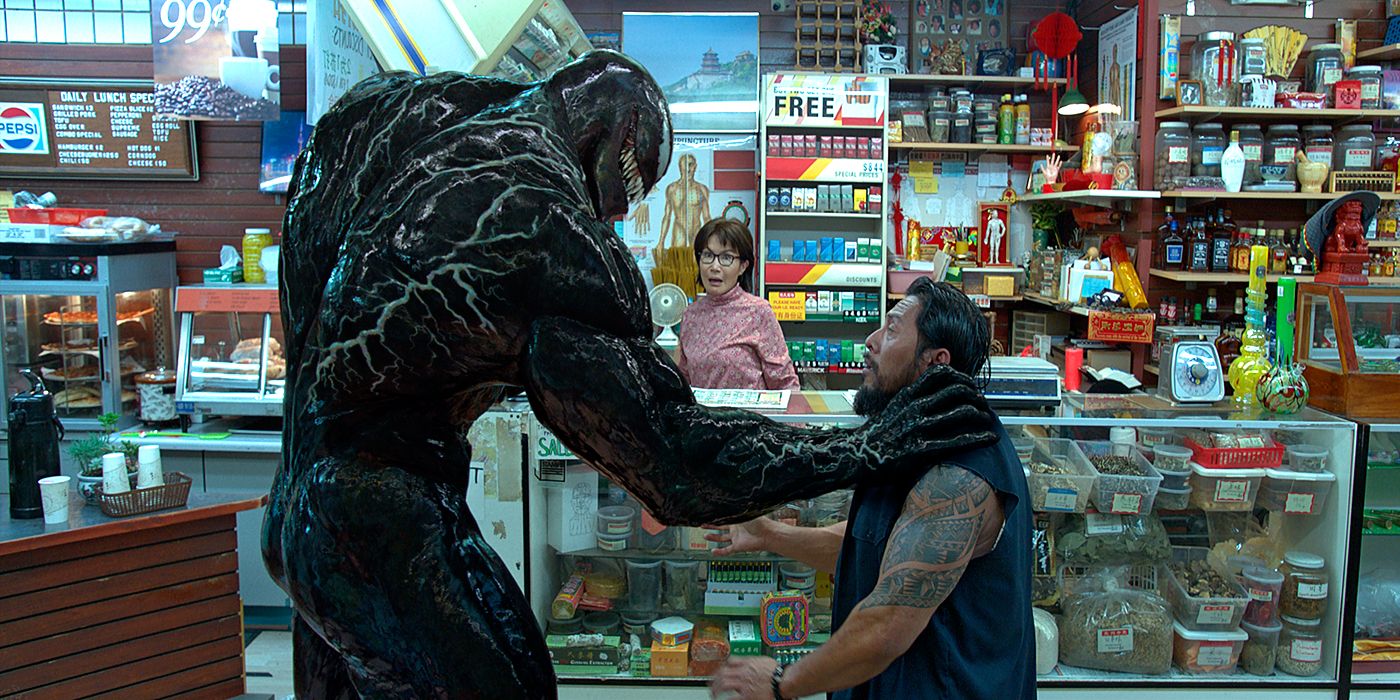WARNING: The following article contains spoilers for Sony's Venom, in theaters now.
Despite largely negative early reviews that drove the film to a meager 31 percent rating on Rotten Tomatoes, Sony's Venom appears destined to be a commercial hit, blasting past early projections with an estimated $80 million opening weekend. Although the studio was no doubt hoping to score a critical success as well, that financial performance should go a long way to ensure not only a sequel but also that plans inch forward for the so-called Spider-Verse, featuring such characters as Morbius the Living Vampire, Black Cat and Kraven the Hunter. However, despite its early box office victory, there remains the question about whether Venom provides a strong enough foundation on which to build such an ambitious cinematic universe.
RELATED: The Best Easter Eggs, Cameos & Marvel Comics References in Venom
Directed by Ruben Fleischer, the film revolves around Eddie Brock (Tom Hardy), an investigative journalist who uncovers deplorable experiments conducted by Carlton Drake (Riz Ahmed) and the Life Foundation intended to bond alien symbiotes to human hosts in a misguided effort to save mankind from inevitable extinction. However, in the process, Brock becomes bonded to a symbiote called Venom.
Venom comes at a time when the standards for superhero films have risen to new heights with highly successful films like the surprisingly poignant Black Panther and Avengers: Infinity War, which means poor critical reception may prove devastating if Sony is intent on creating its own superhero film universe.
Critics have praised Venom's cast but chided the dated humor and goofy writing. Audiences already got a glimpse of much of that from the second full-length trailer, which included the infamous "turd in the wind" line. The often mediocre and inconsistent special effects don't help, especially when they appear in such abundance, from messy fight scenes to long chase sequences.
RELATED: All of the Marvel Comics Symbiotes in the Venom Movie
That's not a strong foundation for an expansive cinematic universe. If you don't believe that, just look at Universal's aborted Dark Universe, which was supposed to have begun last year with The Mummy reboot, starring Tom Cruise. The studio was overeager in that attempt to create a shared universe featuring its iconic monsters, which is why The Mummy was chock-full of unfinished plot threads intended for development in subsequent installments. Unfortunately, those were surrounded by unoriginal screenwriting, which resulted in the film's poor critical reception. Since then, Universal has postponed development of future related films, such as the remake of The Bride of Frankenstein.
Despite the reviews, The Mummy performed decently enough at the box office, making $409.2 million on an estimated production budget of $195 million, accomplished with little hype and no real expectations. Sometimes breaking even is incentive enough for a studio to back a franchise for a little longer; record-breaking success, such as the case with Venom's October debut, makes it an absolute certainty. But even if that weren't the case, financial performance wouldn't be the only factor Sony would looks to when deciding to move ahead with the next Spider-Verse installment.
Page 2: [valnet-url-page page=2 paginated=0 text='Sony%20Has%20Ambitious%20Plans%2C%20But%20a%20Shaky%20Foundation']
Referred to internally as Sony’s Universe of Marvel Characters, or SUMC, the studio's Spider-Verse is an expanded cinematic universe that been envisioned since at least 2007, with the introduction of Venom in Sam Raimi's Spider-Man 3. Sony now plans to follow Venom with films featuring such ancillary Spider-Man characters as Morbius the Living Vampire, played by Jared Leto, Black Cat, Silver Sable and Kraven the Hunter, all notably villains or antiheroes. On paper at least, it seems like a new approach to the superhero genre, and because it's a fresh concept, those films should stand out in an increasingly crowded, providing audiences with a different perspective on the stories we're all used to seeing.
RELATED: How Stan Lee's Cameo May Bring Venom Into the MCU
Venom is supposed to be a way of testing the water and providing a means to measure the potential of those subsequent films. That it's critical failure doesn't speak to the viability of villain stories so much as it does to the need to take greater care when selecting directors and screenwriters. Venom may prove to be something of a lesson for Sony, but it won't prevent the studio from releasing more, especially with other films already in development.
Now in its 10th year, the Marvel Cinematic Universe has reshaped mainstream cinema and modern comic book adaptations, leading to the rush by other studios to attempt to replicate that formula with their own shared universes. But a string of failures in 2017, from Warner Bros.' Justice League to Paramount's Transformers: The Last Knight to Universal's The Mummy, established that's easier said than done, and led each studio to abandon a long-established plan, and attempt to chart a new direction with its franchise. Hollywood learned the painful lesson that there aren't shortcuts to achieving Marvel Studios-style success; a cinematic universe requires a solid foundation, like 2008's Iron Man.
RELATED: What Venom's Final Scene Really Tells Us About Eddie Brock & the Symbiote
And Venom is no Iron Man; heck, it's not even a Man of Steel, which retroactively launched Warner Bros.' troubled DC Extended Universe. It's a shaky foundation on which to build if Sony intends to constructed a shared universe that can stand shoulder to should with the MCU and the DCEU.
None of that is to say Sony's Spider-Verse can't work; the early financial success of Venom makes a sequel a certainty, and the continued development of a Morbius film likely. But any success that cinematic universe may find won't stem from Venom. The vitality of this superhero-less shared universe is going to depend on the next film, which will prove whether Sony's ambitious plan can truly work. If we're judging the future of the Spider-Verse based solely on Venom, it looks as if Universal's Dark Universe may eventually have some company on the ash heap of abandoned cinematic universes.
Venom is directed by Ruben Fleischer and stars Tom Hardy, Michelle Williams, Riz Ahmed, Scott Haze, Reid Scott, Jenny Slate,Woody Harrelson, Sope Aluko, Scott Deckert, Marcella Bragio, Michelle Lee, Mac Brandt, Christian Convery, Sam Medina, and Ron Cephas Jones. In theaters now.




